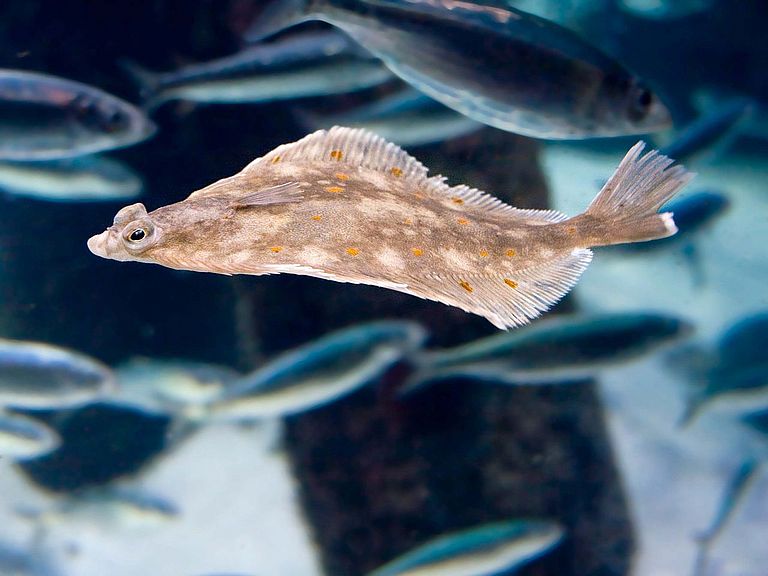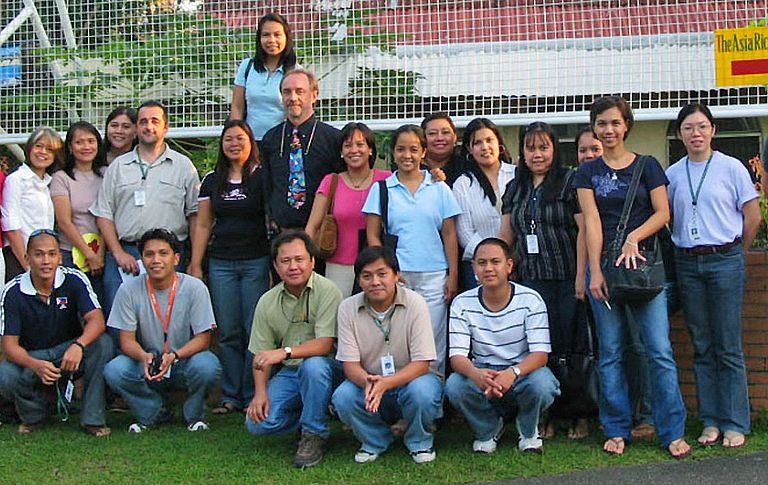A New Species Every Day
03. September 2009/Kiel. From Adonis tetra to Zebra turkeyfish: It’s now 20 years, that FishBase adds fish, which live in saline, fresh or brackish water to a worldwide database. About 31,600 species, 279,100 names and 49,300 photos are registered in this library – therefore it is classified as the biggest biological online-database in the world. 33 million hits are counted every month. At the annual meeting, which takes place from the 6th to 9th of September 2010 in Kiel, FishBase celebrates its 20th anniversary. Dr. Rainer Froese, fishery biologist at the Leibniz Institute of Marine Sciences (IFM-GEOMAR) developed the database together with Dr. Daniel Pauly, Professor at the University of British Columbia.
“FishBase has something for every user”, says Dr. Rainer Froese, fishery biologist at the Leibniz Institute of Marine Sciences (IFM-GEOMAR) and co-founder of FishBase. “Biologists, for example, are able to find information about the morphology, metabolism, brain size, diet composition or the speed of fishes. Conservationists can obtain information about endangered species. Anglers and scuba divers can create their own database of fish they have seen or caught. The fishing industry can monitor the resilience of different species. We have even included the Bismarck herring and the butterfish for consumers who just want to check what’s on the menu.”
The database is not only provided in English, German or Spanish, but also in languages like Chinese, Russian, Arabic, Farsi and Hindi, so that the service can be used all over the world. “We work with about 500 different partners worldwide, who share their latest findings with us”, says Froese. Nearly every day the FishBase team is able to add a new species to the database. “There isn’t a lot left to detect in the Northern Hemisphere, but the deep-sea and the coral reefs south of the equator still hide many secrets from us biologists – not to mention the rivers in South America, Africa or Asia.” Froese is not just collecting; he is fascinated by every single animal. “Every day, we are amazed by the many different colours and shapes – and by the extremes that animals show us – the smallest vertebrate, for example, is a fish which is shorter than a thumbnail. Nevertheless it has the same blueprint as a 20 meter long whale shark.”
The first idea for FishBase can be traced back to the seventies, when the Food and Agriculture Organization of the United Nations (FAO) considered providing their identification catalogues in electronic form. Dr. Daniel Pauly and Dr. Rainer Froese picked up the thought and in the year 1988 they could convince the International Center for Living Aquatic Resources Management (ICLARM), based on the Philippines, to submit a proposal to the European Union. It was successful, and in 1991 the first database was released on 10 floppy disks. They were later on followed by CD-ROMs. In October 1998, FishBase appeared online – the continuously growing library was now internationally available.
The annual meeting takes place from the 6th to 9th of September at the Leibniz Institute of Marine Sciences (IFM-GEOMAR) in Kiel. Scientists from all over the world will be in Kiel, just to be part of this event. Not only the founders of FishBase, Dr. Rainer Froese and Dr. Daniel Pauly, are speakers at the “20 years of FishBase Symposium”, but also team members and supporters. Emily Capuli presents the FishBase-Team, which consistently adds the information to the database. Speakers from China, Africa, South America and Europe will illustrate the work in the different regions of the world. Kostas Stergiou from the Aristoteles University Thessaloniki will talk about the influence of FishBase on science. Over 1000 citations in the primary literature have made FishBase a “Citation Classic”. Maria Lourdes Palomares, University of British Columbia, will provide a view into the future of FishBase: “Extending FishBase to non-fishes” is the name of her lecture. “Until now, FishBase is the only worldwide Information system of its kind. That is about to be changed - at least for the oceans”, explains Froese.
Contact:
Maike Nicolai (Communication & Media), Tel. +49(0)431 600-2807,
mnicolai@geomar.de




